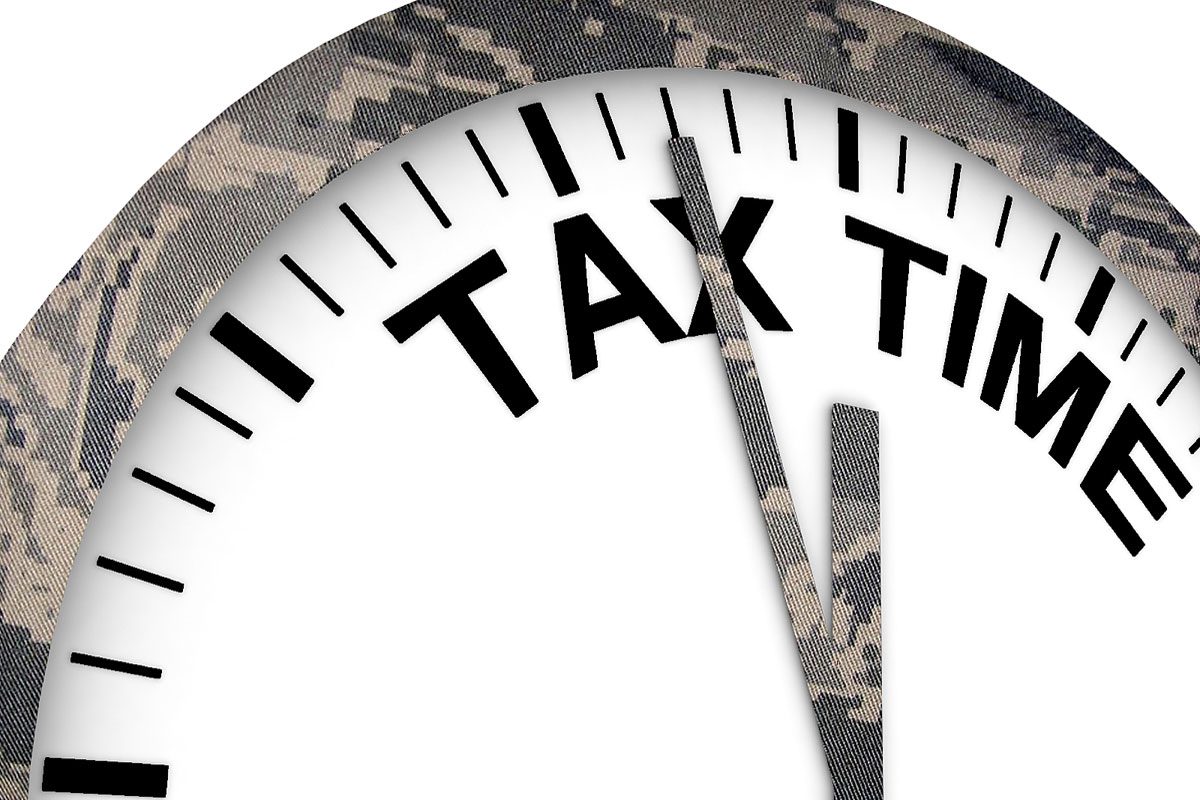There are many tax provisions that military members and their families can take advantage of. Here are some top tax tips to consider before filing taxes:
Free Tax Filing Services and Consultants
Military members and their families can get help at many installations through the Voluntary Income Tax Assistance program (VITA). The legal center on base should be able to confirm if this service is available at the installation. Additionally, through H&R Block and Military One Source free tax filing is available.
Tax Filing & Deadlines
The IRS extends many options for military members and their families if a soldier is overseas and in a combat zone. For example, the deadline for filing a return is automatically extended if a soldier is in a combat zone or has a qualifying service outside of a combat zone.
Gross Income Exclusion & Deductions
Service members receive many types of pay and allowances. The Internal Revenue Service requires that some of these be included in the gross income calculation while others are excluded from a soldier’s gross income. The following are excluded items from gross income according to the IRS:
Living Allowances
BAH (Basic Allowance for Housing), BAS (Basic Allowance for Subsistence), Housing and cost-of-living allowances overseas and OHA (Overseas Housing Allowance) compensation are excluded from gross income according to the IRS.
Moving Expenses
Traveling from one workplace to another or overnight travel is excluded. Traveling to and from work is not. Benefits received for dislocation, military base realignment, and closure can also be excluded. Other types of moving expenses that can be deducted or excluded depending if the expense was a benefit or out-of-pocket un-reimbursed cost include move-in housing, moving household and personal items, moving trailers or mobile homes, storage, temporary lodging, and temporary lodging expenses.
Combat Zone Exclusion
The Combat Zone Tax Exclusion allows service members to exclude certain pay from gross income if they are in a combat zone. Typically the pay must be earned in a month that a service member served in a combat zone.
Types of pay include:
- State bonus pay for service in a combat zone
- Pay received for duties as a member of the Armed Forces in clubs, messes, post and station theaters, and other non-appropriated fund activities.
- Active duty pay earned in any month served in a combat zone
- Imminent danger/hostile fire pay
- Reenlistment bonus
- Awards for suggestions, inventions, or scientific achievements.
- Student loan repayments
- Pay for accrued leave
Miscellaneous Pay Allowances
There are variety of pay allowances that IRS excludes from income including defense counseling, disability, group term life insurance, professional education, ROTC educational and subsistence allowances, survivor and retirement protection plan premiums.
Family Allowances
Military family dependents are extended some exclusions from gross income as well including certain educational expenses for dependents, emergencies, evacuation to a place of safety, and separation.
IRS Military Tax Tips Video
The IRS addresses many tax provisions for military members and their families in this short video including:
- Filing taxes and postponing for members of the military who are on duty overseas
- Military uniform deductions
- Out-of-pockets travel expenses
- Tax deadlines
- Military specific tax deductions
- Travel expenses
Death gratuity
Any death gratuity paid to a survivor is excluded from gross income. Un-reimbursed dependent travel and burial services are also deductible.
In-kind Military Benefits
The military provides many in-kind benefits, some of which do not need to be included as gross income, such as:
- Space-available travel on government aircraft
- Legal assistance
- Dependent-care assistance program
- Commissary/exchange discounts
- Medical/dental care





